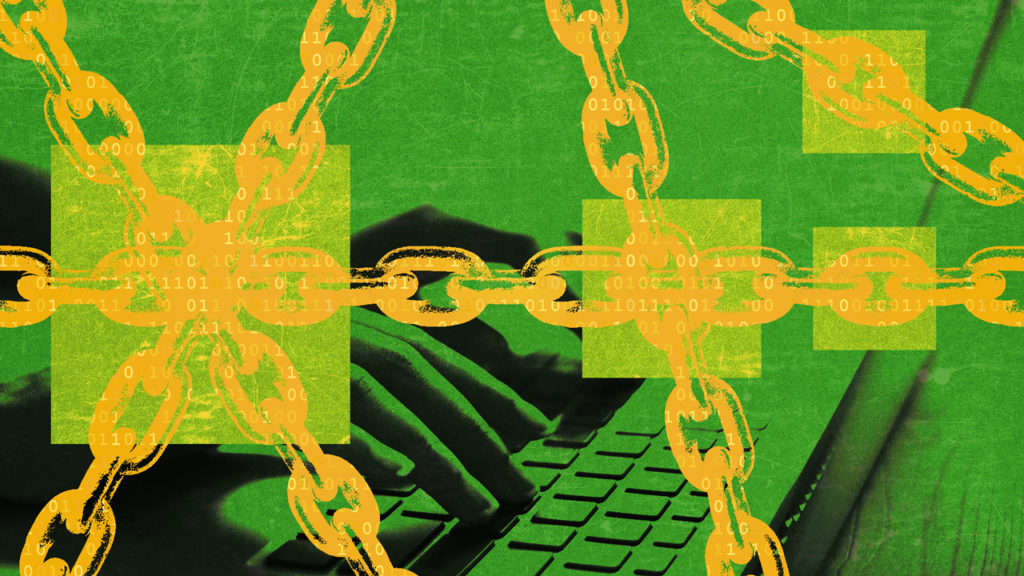Blockchain entertainment company Breaker has spent the last several years building a platform “by artists for artists” and is ready to seek an audience. Formerly SingularDTV, the company rebranded in January and is currently in beta with a library of 210 films, 46 music albums and new content being uploaded on a daily basis.
Attracting talent and distributors hasn’t posed a problem thanks to the platform’s transparency and real-time payments. Traditionally, artists would upload their works on a platform and wait patiently for their royalties. On Breaker, artists are paid immediately each time a purchase is made, using blockchain.
The marketing team helped gain exposure for Breaker by attending tentpole events like Cannes Film Festival and hosting blockchain entertainment panels at SXSW. In addition, the company has taken festival marketing a step further by creating one of their own.
The inaugural Screenbreaker festival, held in partnership with Screen International, will commence in NYC April 26-27, followed by Los Angeles and Hong Kong later this year.
Thus far, Breaker has penned deals with independent film distributors FilmRise (My Friend Dahmer), Oscilloscope Laboratories (Combat Obscura), Dread via Epic Pictures Releasing (Book of Monsters), Vertical Entertainment (Gotti) and Comedy Dynamics (Jim Gaffigan: Noble Ape). The company is also in the process of negotiating deals with A24 (Hereditary) and others.
“Since our launch on Jan 31, we have had over 6,000 downloads which we consider a win given that we are in beta [and] only have a desktop app,” Breaker’s senior vice president of marketing Kerry Fitzmaurice told AList, adding that a decentralized app will launch by year’s end.
As Breaker comes out of beta, the marketing team will continue to identify its audience beyond the creators and distributors themselves.
“As a brand, we’re designed to actually appeal to both [creators and consumers],” Fitzmaurice commented. “Since we are in beta, our approach to consumer engagement is to test and learn.”
Fitzmaurice places a high emphasis on transparency and Breaker promises never to sell data to third parties. That being said, the marketing team doesn’t have the luxury of boycotting data-hungry sites like Facebook just yet.
“Since we are a new brand in an overcrowded space we need to tell our story where there are people to listen,” said Fitzmaurice. “So, we are leveraging the ad units and suite of tools offered by Facebook and Google so that we can find and reach our people. We are also looking into expanding our relationship with more like-minded brands like [open source browser] Brave.
“Obviously, we will move the bulk of our media spend to mobile and increase spend,” added Fitzmaurice. “While we are in beta, we are being thoughtful about our spend because we want to test and learn what is work, what messages are resonating, who our audience is and what they want.”
Blockchain entertainment may become the way of the future, but that doesn’t make marketing Breaker any easier. Innovative or not, Breaker found that consumers are more interested in the content itself.
“Through market research, we know that entertainment consumers don’t necessarily care about the ability to use crypto [currency] or that our backend is built on blockchain,” said Fitzmaurice, noting that 40 percent of users have paid using cryptocurrency. “We hope our secondary message of championing artists with transparent real-time accounting, sharing key data and protecting IP resonates with artists—but our number one message is that we have rich independent content on the platform that you won’t necessarily find easily anywhere else.”
That’s not to say that consumers aren’t being entertained by the idea of blockchain. Breaker released a documentary called Trust Machine: the Story of Blockchain that is designed to educate and inspire. The film was directed by documentary filmmaker Alex Web (Downloaded, Deep Web) and narrated by actress and activist Rosario Dawson (Daredevil).
“I think that our documentary is resonating because people are curious about blockchain and this film helps our audience understand why our proposition matters,” Fitzmaurice observed. “The entertainment industry was not designed with the artist in mind. Trust Machine is our tool to educate people across film, entertainment and even test how we go to market. The film has been extremely well received, which tells us there is a tremendous thirst for information on blockchain technology.”
The global blockchain technology market is expected to reach $7.59 billion by 2024, according to Grand View Research, Inc. The technology is being explored for a myriad of uses from non-profit organizations and banking to fighting programmatic advertising fraud.

